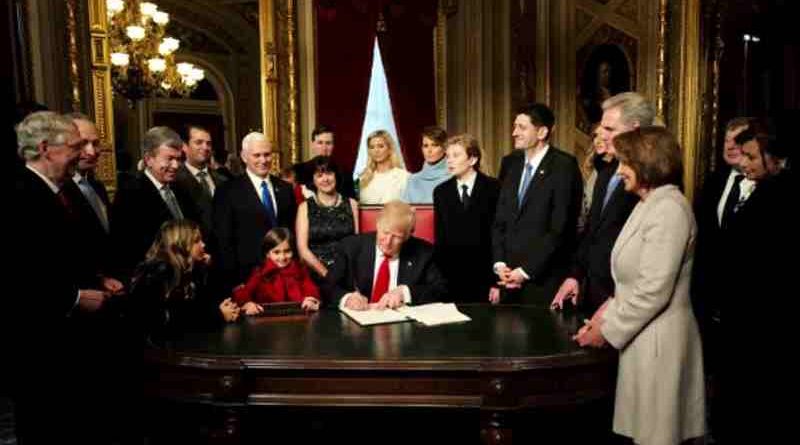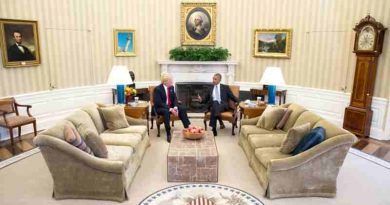Trump Signs Muslim Travel Ban Order, Again.

By Rakesh Raman
After facing a severe opposition from people and American courts for his executive order signed in January, President Donald Trump issued Monday a revised order restricting entry of people from six Muslim countries: Iran, Libya, Somalia, Sudan, Syria, and Yemen.
Iraq, which was in the previous list of banned countries, has been excluded from the new list. According to a White House statement, decisions about issuance of visas or granting admission to Iraqi nationals should be subjected to additional scrutiny.
It will be determined if Iraqi applicants have connections with ISIS (Islamic State of Iraq and Syria) or other terrorist organizations, or otherwise pose a risk to either national security or public safety.
The earlier Muslim ban order issued on January 27 had “suspended for 90 days the entry of certain aliens from seven countries: Iran, Iraq, Libya, Somalia, Sudan, Syria, and Yemen.”
According to that order, these countries had already been identified as presenting heightened concerns about terrorism and travel to the United States.
Last month, U.S. District Judge James Robart had issued a nationwide temporary restraining order blocking Trump’s Muslim ban order.
Trump also had fired a top federal government lawyer Sally Yates when she opposed Trump’s order.
A number of United Nations (UN) human rights and refugee welfare agencies had expressed their anguish over Trump’s arbitrary decision to ban the entry of people from certain Muslim countries.
The agencies – including UNHCR, the UN Refugee Agency, and IOM, the International Organization for Migration – hoped that the U.S. will continue its strong leadership role and long tradition of protecting those who are fleeing conflict and persecution.
By Rakesh Raman, who is a government’s National award-winning journalist and runs free school for deserving children under his NGO – RMN Foundation.
💛 Support Independent Journalism
If you find RMN News useful, please consider supporting us.




